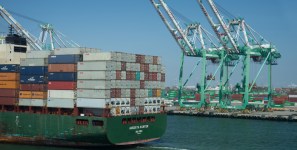Greece is Behind Privatizing State Assets
Greece will miss its revenue target from asset privatization sales this year, said officials of the country’s privatization agency. The main problem has been a delay in a $1.34 billion airport deal.
As part of commitments under a $96 billion rescue loan from international creditors, Greece was supposed to raise $1.6 billion from privatizations this year.
Greek officials now say reaching the 2015 figure is “unfeasible.” Nonetheless, they still believe they will reach the 2016 target of $4.1 billion in privatizations.
At the end of last year, the Greek government chose a partnership of the German company Fraport and the Greek energy firm Copelouzos, as the preferred bidder to operate 14 regional airports. But that agreement, along with other pending deals, including the sale of a 67-percent interest in Greece’s biggest ports, Piraeus and Thessaloniki, was pulled back when the left-leaning Syriza-led government came to power in January.
Although the deals are once again moving forward, Greece will likely not be able to close the airport transaction by the end of the year.
Greece has raised about $4 billion from asset sales since its first bailout in 2010, far below the original $56 billion target.
Greek officials expect the airport deal to be concluded, but need to grant a short extension to make it happen.
With regard to the sale of the seaports, investors will be asked to bid on a 51-percent stake by early next year, with the option to secure the additional 16 percent. Greek officials estimate bid winners will need to invest about $112 million in the ports.
APM Terminals of the Netherlands, Duferco Holding of Switzerland, Russian Railways, the Philippines’ International Containers Terminal Services, and Japan’s Mitsui & Co. are among the port bidders.
The privatization efforts have also faced legal problems. The sale of natural gas grid operator DESFA to the Azerbaijan state-owned oil company SOCAR was held up by the European Union due to antitrust concerns.





Leave a Reply